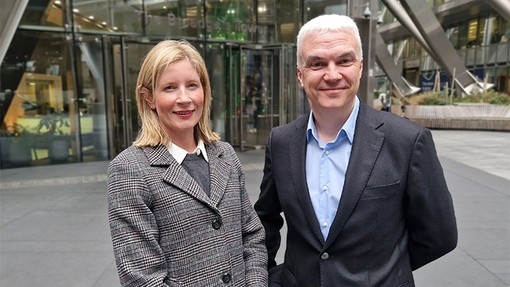Balancing Reputational Harm and the Public Interest Defence: Banks -v- Cadwalladr

Details
The High Court’s recent judgment in Banks-v-Cadwalladr [2022] EWHC 1417 provides a detailed analysis on various aspects of the law on defamation, in the context of allegations made by a journalist against a high-profile individual.
Arron Banks, a high-profile businessman famous for donating money to UKIP and Leave.EU, sued journalist Carole Cadwalladr for defamation. His claim revolved around words spoken by Ms Cadwalladr at a TED talk on 15 April 2019 (‘the TED Talk’), and comments made alongside her subsequent reposting of the TED Talk via Twitter on 24 June 2019 (‘the Tweet’).
The judge considered whether the TED Talk and/or the Tweet had caused or were likely to cause serious harm to Mr Banks’ reputation under the meaning of s.1 of the Defamation Act 2014 (‘the Act’); and, if they had, whether Ms Cadwalladr had successfully established a public interest defence under s.4 of the Act. If the answer to the first question was ‘yes’ and to the second was ‘no’, then the claim would succeed.
Serious Harm to Reputation – s.1 of the Act
The meaning of Ms Cadwalladr’s words was decided at a preliminary trial of meaning on 4 December 2019. Serious harm was therefore examined in relation to this ‘single meaning’:
‘On more than one occasion Mr Banks told untruths about a secret relationship he had with the Russian government in relation to acceptance of foreign funding of electoral campaigns in breach of the law of such funding’
Mr Banks’ arguments supporting serious harm included the gravity of the allegations of dishonesty in respect of ties to a foreign power, and that the TED Talk was an international platform affecting him as an international businessman – citing during cross-examination one occasion where a potential lender which failed to offer him funding said that ‘the litigation had been flagged’.
The defence contested that Mr Banks’ increased political activity was relevant at a time where similar allegations are being levelled at political figures more frequently. The audience of the talk was also considered, reaching a large viewership of ‘people who are interested in such matters’, but it being unclear how many views were by people within the jurisdiction of the court.
The judge considered the TED Talk and the Tweet separately. For the former, although the effect on Mr Banks’ business prospects was deemed negligible, it was decided that the ‘single meaning’ implied ‘serious, repeated dishonesty on the part of the claimant about serious matters’. The judge accepted that the TED Talk caused serious harm to Mr Banks’ reputation.
However, although many of the circumstances around the Tweet were the same as the TED Talk, Mr Bank’s claim was dismissed in this respect. The judge gave weight to the far smaller audience of the Tweet, and that those who saw it would largely be followers of Ms Cadwalladr ‘whose opinion of the claimant was of no consequence to him’.
Public Interest Defence – s.4 of the Act
Ms Cadwalladr therefore had to establish a public interest defence in respect of the TED Talk. The requirements under s.4 of the Act are firstly that the ‘single meaning’ was on a matter of public interest – and it was common ground that this was the case here – and similarly that the defendant reasonably believed that publishing them was in the public interest.
The judge considered Ms Cadwalldr’s long record of investigating and reporting on issues such as electoral funding. The totality of her TED Talk was noted as being a ‘serious contribution to the discussion of a subject that was of real and abiding public interest at the time of publication’.
Crucially, it was also held that since Mr Banks had pleaded a series of different precise meanings of Ms Cadwalladr’s words before arriving at the ‘single meaning’ above, the judge assessed the public interest defence against a less damaging meaning which she held that Ms Cadwalladr intended to convey.
The judge then decided that Ms Cadwalladr had reasonable grounds to believe that her intended meaning was true, and that she had established that she reasonably believed publishing the TED Talk was in the public interest.
Significant Change in Circumstances
The judge was directed to a joint statement by the Electoral Commission, Mr Banks and others published on 29 April 2020, saying that no evidence had been found that any criminal offences had been committed by Mr Banks, and no breaches of the law on funding electoral campaigns had been committed. This was held to constitute a significant change in circumstances, causing Ms Cadwalladr’s public interest defence to fall away on this date.
However, in one final twist, the judge also reassessed serious harm as at the date of 29 April 2020 and found that this threshold was no longer passed – as a result of far lower publication figures over a year from the original date of the TED Talk.
Mr Banks’ claim therefore failed.
Comment
Quite apart from the outcome, the forensic examination of Mr Banks’ business interests, messages with various figures and his political activity – which is all now in the public domain – shows the risks of bringing a high-profile defamation claim. The court’s approach to assessing a significant change in circumstances is also one which will likely be a cause for future judicial comment.
It is possible that Mr Banks will appeal the decision having been granted leave, with any such appeal having potentially significant repercussions on how the law on defamation is applied in this context. We will provide an update on any appeal in due course.
For further information n this topic, please contact Andrew Little and Dan Taylor.





